Talking About Elections and the Government in French
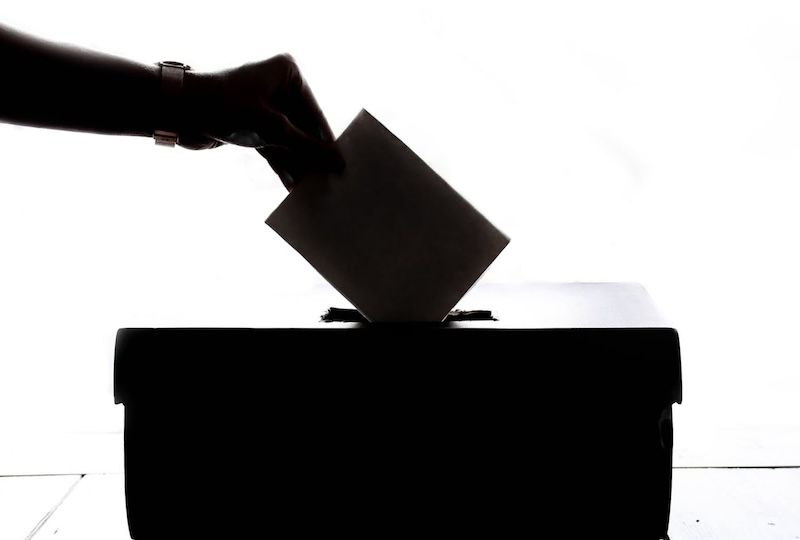
As a French language learner, there are a lot of topics that you'll cover as you study and memorize new vocabulary. At the beginning of your studies, you start simple: colors, animals, and family members. As you progress, however, you'll start to study different sets of vocabulary: sports, history, and government.
Learning new French vocabulary is an important part of your French learning journey. Not every topic will be your favorite and, unfortunately, many of the important topics are ones that people don't love going over. But election and government vocab doesn't have to be boring! In this post, we'll cover exactly why you should take the time to study it, even if politics isn't your favorite subject.
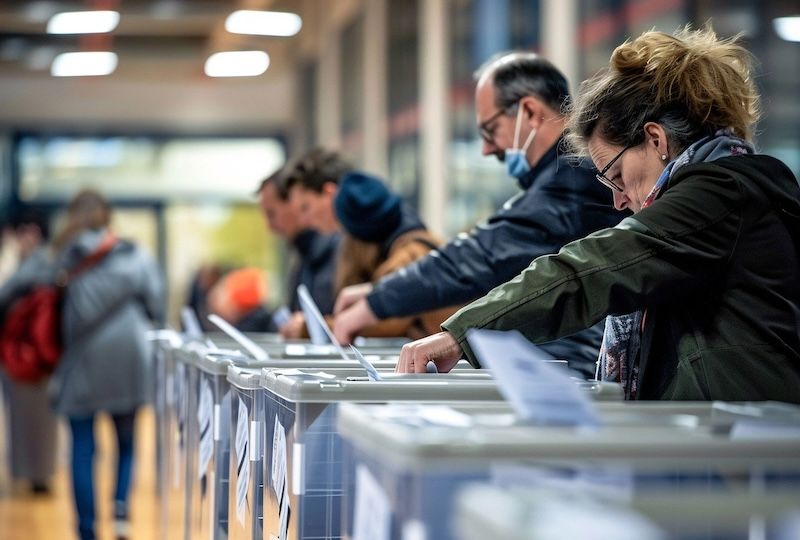
Why Learn French Election Vocab?
Almost every country in the world holds some form of an election. Elections happen at all different times of the year and never all at once, which means that knowing election vocab in French is important. You never know when it's going to come up. When it does, though, you want to be prepared.
As a French learner, you are most likely interested in French culture and living. This includes French elections. I won't dive deep into the French election system, but this website provides a great guide to the basics of French elections that uses some of the vocabulary we'll go over down below.
If you're passionate about politics, great! You'll find this subject particularly interesting, and when you study vocab that interests you, you stay motivated.
If you don't enjoy politics, I apologize in advance. It's best to just buckle up and trudge through it. Trust me: You won't regret having this French vocabulary in the future, even if you don't enjoy it now.
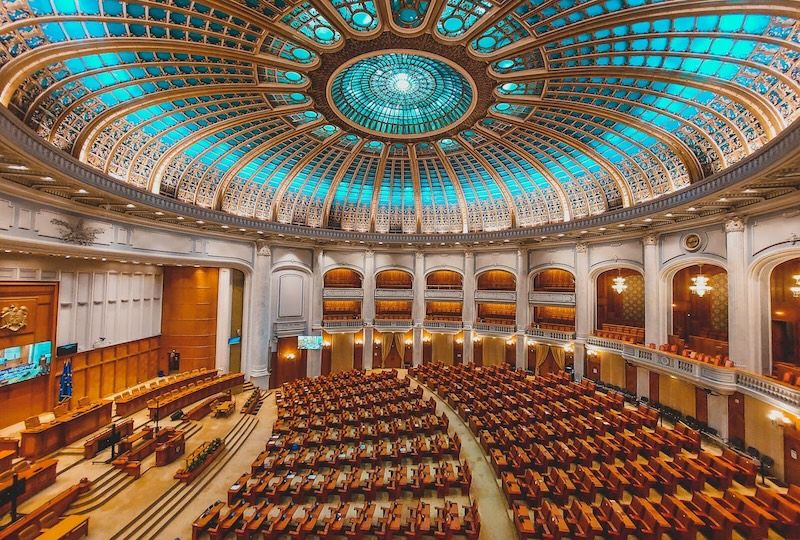
French Election and Government Vocab
Being able to talk about elections and the government is important for talking about your home country, France, and other countries. However, every country has a slightly different system so not all of the vocab listed below may be relevant for your home country. In any case, it's worth memorizing them as you never know when they might come up in conversation.
For the Americans learning French, here's a list of American election vocab in French that may be useful to learn as well.
Government Vocab in French
- le Parlement = Parliament
- l'Assemblée générale (fem.) = the National Assembly (the lower house of the French Parliament)
- la Chambre basse (du Parlement) = another term for the National Assembly
- la Chambre haute (du Parlement) = the Senate (the upper house of the French Parliament)
- le Sénat = another term for the Senate
- l'Élysée = Elysée Palace (where the President lives and works)
- le Château = another term for the Elysée Palace
- le Premier ministre/la Première ministre = the Prime Minister
- le président/la présidente = the President
- le député = National Assembley member (similar to a congressperson in the US or an MP in the UK)
- le candidat/la candidate = candidate
- un sénateur/la sénatrice = senator
- le partisan = supporter
- un conseiller/une conseillère = councillor
- le gagnant/la gagnante = winner
Government Party Vocab in French
France has multiple main government parties, but they all fall somewhere on the scale from the far left to the far right. Here is a list of the party positions in French as well as some of the most well-known parties in France and their position on this scale.
- le centre = center
- la droite = right/right-wing
- la guache = left/left-wing
- le centre-droite = center-right/moderate right
- le centre-gauche = center-left/moderate left
- l'extrême droite (fem.) = far right
- l'extrême-gauche (fem.) = far left
- le Parti socialiste = socialist party (center left)
- les Verts = the Greens/green party (center left)
- les Républicains = the Republicans (center right)
- le Rassemblement national (RN) = the National Rally party (far-right)
- le Nouveau front populaire (NFP) = the New Popular Front party (a coalition of left parties)
Election Vocab in French
- une investiture = nomination
- un électorat = constituency
- le débat = debate
- le droit de vote (note that droit doesn't end in an -e) = the right to vote
- le bulletin (de vote) = ballot
- l'urne (fem.) = ballot box
- le vote blanc = a deliberately blank ballot
- le vote barrage/le vote de rejet = voting against a certain candidate
- le vote d'adhésion/le vote de conviction = voting for a candidate you like
- la voix = vote (literally: voice)
- un isoloir = voting booth
- l'ouverture du scrutin (fem.) = start of polling/voting
- le dépouillement = counting of the votes
- les résultats (always plural) = results
- le sortant/la sortante = incumbant or outgoing (if not re-elected)
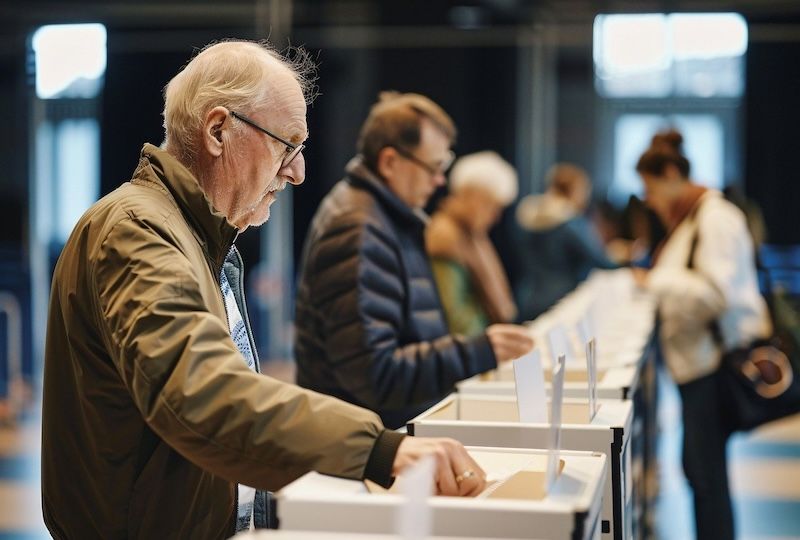
French Election Verbs
An election is something that you do. It's an action as much as a noun and as such, there are a variety of verbs that are used when talking about elections. Here is a list of the most common ones:
- se présenter aux élections = to run (in an election)
- aller aux urnes = to go vote (to head to the polls)
- voter = to vote (the act of casting a vote)
- appeler à voter = to call people to vote for X
- donner la consigne de vote = to recommend another candidate/to endorse
- arriver en tête = to become the top candidate
- être en tête = to be in the lead
- repasser = to retake the lead
- dépouiller un scrutin = to count the votes
- gagner = to win
- remporter les élections = to win the election
- perdre = to lose
- obtenir le même nombre de vote/voix = to tie (literally: to receive the same number of votes)
- élire = to elect
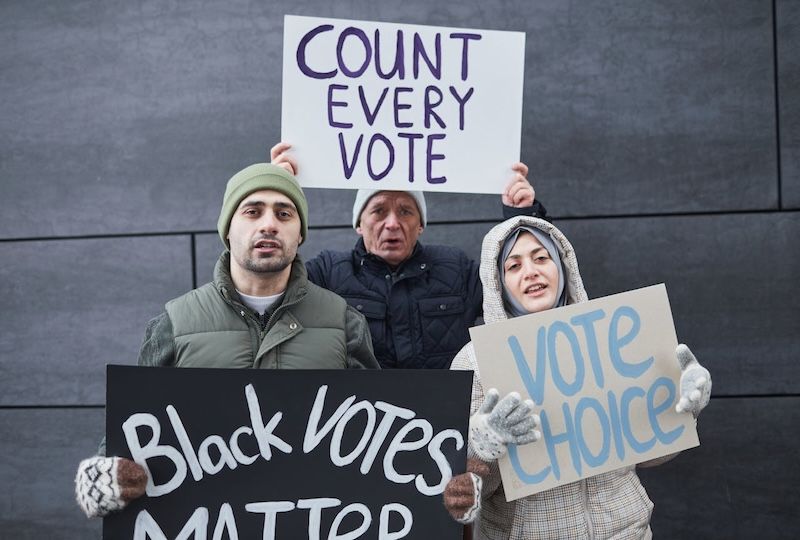
How to Talk About Elections in French
It isn't enough to just know French words in a list. If you really want to talk about elections in French, you have to be able to use the vocab that you've learned. This means that you'll need to be able to conjugate the relevant verbs as well.
In most cases, people talk about elections as a future event. This means that the most useful tenses to know in French are the future tenses: le futur proche and le future simple. Luckily, both are pretty easy to learn.
To conjugate for le future proche, all you need to do is conjugate the verb aller and then add the infinitve of the verb you want. Here's an example:
- Je vais aller aux urnes = I am going to go vote
- Elle va arriver en tête = She is going to become the top candidate
- Ils vont dépouiller un scrutin = They are going to count the votes
Le futur simple is a little bit more complex, but it isn't hard. All you need to do is take the conjugated form of avoir and add it directly to the end of the infinitive. There are some irregular verbs, but this tense is otherwise very simple. Here's a guide that explains it well.
In some cases, you may be talking about past elections. This will require the use of French past tenses. There are several French past tenses, some more difficult than others, but you don't need to master every single tense in order to talk about elections. You'll learn them over time and slowly become more comfortable using them.
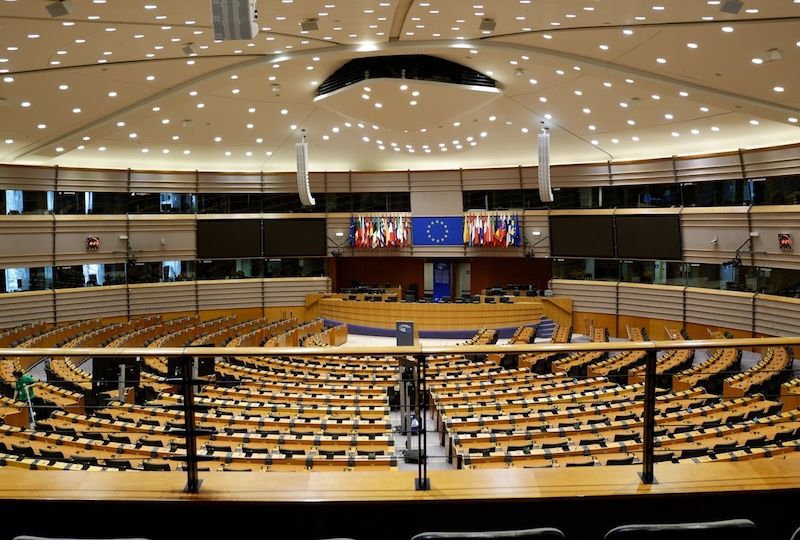
Don’t Be Afraid to Talk Politics!
As a French learner, it's important that you practice the vocab that you study. Going over it once won't be enough for it to stick in your brain. The more frequently you use it, the more comfortable you'll feel. While the words may be difficult or sound clunky at first, your French pronunciation will get better with time so that, eventually, the words feel natural when you use them.
Unlike with other topics, election and government vocab can scare people. Politics can be a sensitive topic, but it doesn't have to be taboo. When you're working on your new French vocabulary, the focus should be on practicing and not on arguing about politics. Keep things simple and easy, and wait to hold those intense political debates until you're much further along in your language learning journey.
